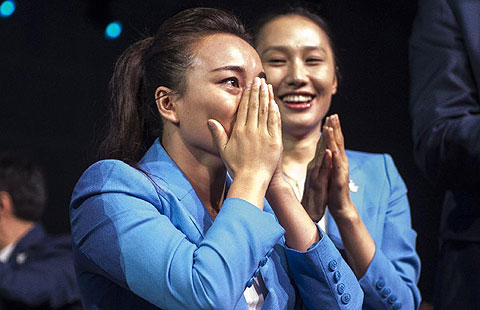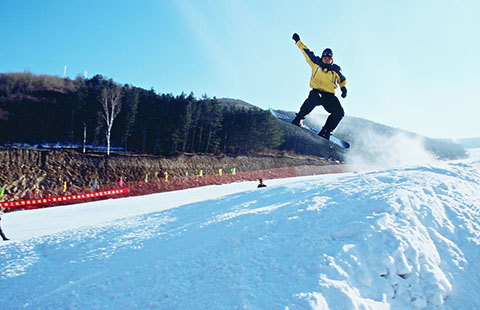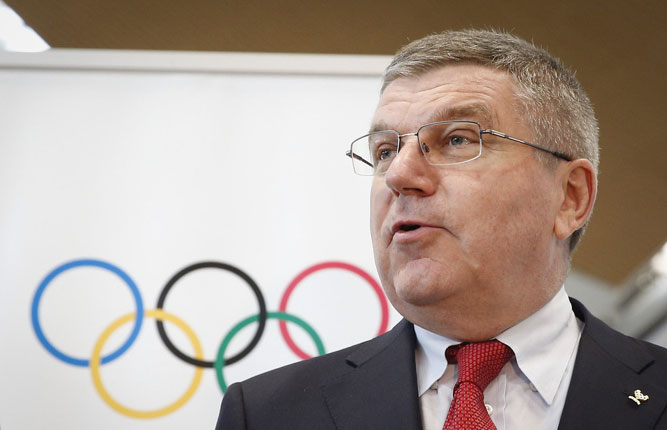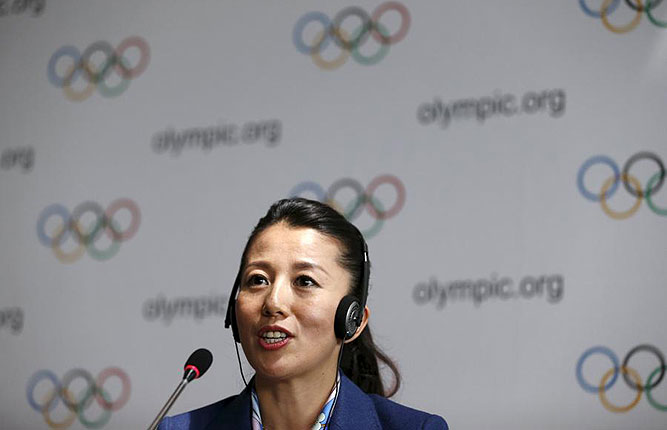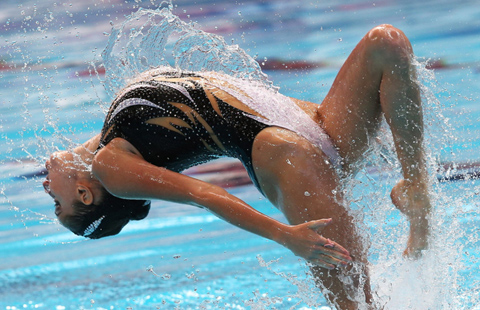Beijing's mountainous areas 'are perfect' for artificial-snow courses
By Sun Xiaochen (China Daily) Updated: 2015-06-25 00:58
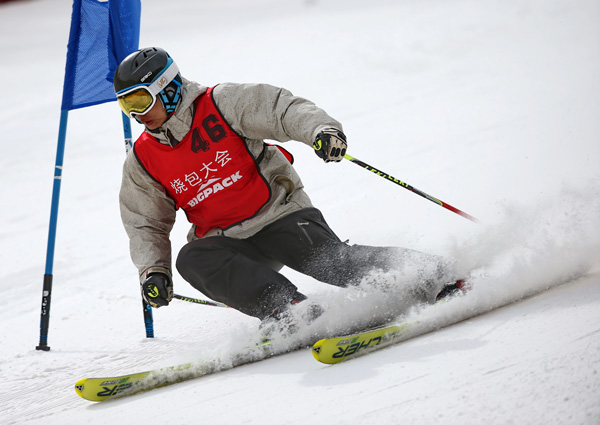 |
|
Skiing action in Chongli county in Zhangjiakou, Hebei province, in March. The long ski season and its climate attract many skiers. Yang Shiyao / Xinhua |
Oba Junji, an alpine ski coach, grew up in Hokkaido, Japan, where snow is abundant in the winter months. Since 2007 she has taught young people how to handle the slopes in Zhangjiakou.
The long ski season in the city's Chongli county, as well as its climate, which is ideal for high-quality, man-made pistes, has attracted a growing number of international skiers, such as Oba's students, who are mostly from neighboring countries and are looking for early-season training.
"Japan has much more snowfall than China, but the temperature in Japan is not low enough, and it's too wet to groom high-quality training trails in the early part of the ski season," said the 56-year-old, who is also an official with the Ski Association of Japan. "Chongli is the best choice."
With their cold and dry high-altitude climates and mountain terrains, ski industry insiders say Chongli and Yanqing county in northwest Beijing, have ideal environments to produce artificial snow and to groom firm, flat racing slopes.
"Man-made snow can meet the requirements of professional downhill skiers for hard and flat courses," said Yang Xuwen, the director in charge of snow-making systems at Chongli's Wanlong Ski Resort.
Mojca Ogris-Schimberg, a senior manager at Demaclenko, which makes snow-making machines, agreed that the favorable natural conditions in Beijing's mountainous areas make them perfect for artificial-snow courses.
"The climate and geographic conditions around Beijing, Yanqing and Chongli are good for producing artificial snow because the air has little humidity and it is relatively cold, which is the optimal combination. Many other resorts around the world struggle because of high humidity and high temperatures."
Demaclenko has been active in China since 2005, working with resorts such as Jundushan in northwest Beijing and Dolomiti Mountain Resort, Chongli, to plan, develop and maintain artificial-snow trails.
According to the 2022 Beijing bid plan, Genting Resort in Chongli will stage freestyle skiing and snowboarding events at two upgraded snow parks. Song Zhiyong, its deputy general manager, said the low temperatures will guarantee a sufficiently long period for making and maintaining artificial-snow courses.
"We could start to make snow as early as in late October thanks to the dry, cold weather," he said. "This is probably the earliest place to be able to open business in the northern hemisphere."
To guarantee a full coverage of snow on its mountain terrain, Genting uses equipment imported from Italian snow-makers TechnoAlpin to create "meltdown spots" on trails and grooms the slopes every day.
"The colder it is, the better it is for making and maintaining artificial snow," said Patrick Danielsson, general manager of TechnoAlpin's China branch. "The conditions (in Beijing) meet the requirements, and they are better than in Sochi (the Russian city that hosted last year's Winter Olympics)."
Ogris-Schimberg said the climatic conditions at even some world-famous ski destinations are less suitable than Beijing for making clean, high-quality snow.
"Beijing is certainly suitable for hosting the Winter Olympics, although some of the most important things to consider will be professional planning, the necessary design and the size of water collectors and professional snowmaking systems, which will minimize the impact on surrounding areas and populations."
